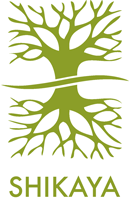Teacher Workshops
 We started 2012 off with the roll-out of our Facing the Past seminars that have been well received by our teachers. These seminars are geared towards the new CAPS curriculum and afford teachers the opportunity of engaging with us and each other, as we unpack the topic, identify the challenges, and address our personal feelings and how they impact our teaching. We have hosted the following seminars this year:
We started 2012 off with the roll-out of our Facing the Past seminars that have been well received by our teachers. These seminars are geared towards the new CAPS curriculum and afford teachers the opportunity of engaging with us and each other, as we unpack the topic, identify the challenges, and address our personal feelings and how they impact our teaching. We have hosted the following seminars this year:
1. Homophobia in the South African Context
For Shikaya’s first Facing The Past Teaching Seminar of 2012 Karen Murphy, International Director from our partner organisation, Facing History and Ourselves, hosted a workshop on homophobia. Homophobia is a critical issue in South Africa and has been particularly highlighted in the Western Cape with the consistent delays in the trial of the murderers of Zoliswa Nkonyana in 2006 - a 19-year-old woman who was murdered because she lived openly as a lesbian. The workshop proved to be a rewarding experience for all. Participants were able to express concerns, uncertainties and fears in an open and safe environment. Schools and classrooms were thought of in different ways, leading to a common goal of creating safe spaces for leaners in the school and classroom. Each left with an undertaking to do one thing to make the school a safer place of LGBT learners.
2. Identity in South Africa: African and Afrikaner Nationalism
The second of the Facing the Past seminar series explored issues of identity and nationalisms in South Africa in relation of African and Afrikaner nationalism. This was a significant day for the seminar as it was the opening of parliament and in the evening the President gave his annual state of the nation address! The discussions highlighted the complexities of the concept of nationalism, particularly when coming to grips with nationalisms within a country. While the curriculum directs us to engage with positive and negative aspects of nationalism, there was a feeling that nationalism can never be positive. The discussion was rounded off by reading an extract from an article by Katy Hughes,
What is nationalism?’
http://katy-hughes.suite101.com/what-is-nationalism-a53052. The extract concluded with these words: Even nationalists cannot agree on exactly what constitutes nationalism, as beyond this shared desire for the success of the nation, they have very little in common.’ There are some really important things to think about as history teachers in post-apartheid South Africa. As long as we continue to teach as though group identities exist in South Africa in a fixed way, we continue to emphasise our divisions and run the risk of continuing stereotypes and prejudice among the youngsters in our classes.
3. Choices and Human Behaviour in apartheid South Africa 1960s
4. Choices and Human Behaviour in apartheid South Africa 1970s - 1980s
Our teachers share there comments about the Facing the Past seminars:
"I really enjoy the debate, exchange of ideas and exposure to
challenging processes. All add in to me as an effective teacher."
"We're (teachers) constantly looking at new, different, interesting and
exciting ways of presenting history in class. The unanswered questions
and silent conversation is new to me and something that i can use
effectively in class."
"(These seminars are) personally forcing me to acknowledge certain
feelings..."
They are an eye-opener. They develop your skills in terms of knowledge,
unpacking sources, and different methodology to approach certain
topics."
